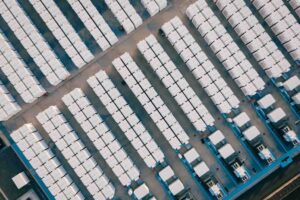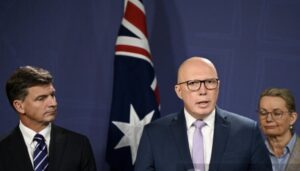The G20 meeting in China may have been notable for the decision by both China and the US – the two biggest carbon emitters on the planet – to ratify the Paris climate treaty, an initiative that will almost certainly see the deal come into force by 2017, three years earlier than anticipated.
But the grouping of the world’s most powerful nations is still taking little action on ending fossil fuel subsidies, despite agreeing to the move in 2009 to end what has been described as the “dumbest policy” in the world.

The International Energy Agency estimates that countries spent $US493 billion on consumption subsidies for fossil fuels in 2014, while the UK’s Overseas Development Institute suggests G20 countries alone devoted an additional $US450 billion to producer supports that year.
Throw in the unpaid environmental and climate impacts, and the International Monetary Fund puts total annual subsidies for fossil fuels at more than $5 trillion.
Last week, the Bloomberg Editorial Board said fossil fuel subsidies were the dumbest policy they could find in the world, saying that the “ridiculous” outlays would be economically wasteful even if they didn’t also harm the environment.
“They fuel corruption, discourage efficient use of energy and promote needlessly capital-intensive industries,” the Bloomberg team wrote. “They sustain unviable fossil-fuel producers, hold back innovation, and encourage countries to build uneconomic pipelines and coal-fired power plants.
“Last and most important, if governments are to have any hope of meeting their ambitious climate targets, they need to stop paying people to use and produce fossil fuels.”
The Bloomberg team said the G20’s pledge in 2009 is “no use” and “too vague”, and called on the governments to first agree on a standard measure to report various subsidies (Australia, for instance, rejects the claims by NGOs and others that it has $7 billion a year in fossil fuel subsidies) and to set strict timelines for eliminating them.
They didn’t; despite the call being echoed by 200 civil society groups, and multi-national insurers with $1.2 trillion in assets, led by Aviva, who called on the G20 leaders to “kick away the carbon crutches” and end fossil fuel subsidies by 2020.
“Climate change in particular represents the mother of all risks – to business and to society as a whole,” said Aviva CEO Mark Wilson. “And that risk is magnified by the way in which fossil fuel subsidies distort the energy market. These subsidies are simply unsustainable.”
But the G20 only went so far as to “reaffirm our commitment to rationalise and phase-out inefficient fossil fuel subsidies … recognising the need to support the poor, even though most analysis says such subsidies mostly support the well off. We … look forward to further progress in the future,” the G20 said.
NGOs are now hoping that Germany, which will take over the chairmanship of the G20 for the next year, will deliver a tight deadline by the time the next summit. Some say it will be the “last chance” to agree on an end date.
One significant step was the progress towards “green finance” and China’s initiatives, in particular, to create a “green financing system” drew attention and applause.
“This will be the most capital intensive transition in human history,” said Ben Caldicott, from the University of Cambridge.
China’s initiatives comprise 35 action points and present a roadmap to developing various green financial instruments and a range of “green” incentives such as central bank re-lending, guarantees, interest subsidies as well as the launch of a national-level green development fund.
China is already the world’s biggest green bond market, accounting for one-third of the green bonds issued in the first half of the year. That was worth 75 billion yuan, but the task to meet the Paris goals is expected to cost more than 3 trillion yuan (around $US450 billion) annually.
Of course, this comes at a time when the Australian government is trying to strip $1 billion in funding from the country’s primary supporter of new renewable energy technologies, the Australian Renewable Energy Agency.
As for the Paris deal, HSBC says it expects the treaty to be ratified by the end of this year. One of the major concerns is that the deal needs to be “Trump-proof”, meaning that it needs to be brought into effect before Donald Trump wins the US presidency, which latest opinion polls suggest is still a live option.
HSBC says it would not be surprised if EU countries started to break ranks with historical diplomatic norms and started to ratify the treaty individually, to make sure that the numbers are delivered in time.
“For instance, we think it is unlikely that France, the host of COP 21, can wait too long for other EU countries before formally joining the Paris Agreement.”

“The working assumption from the UNFCCC was that the agreement would come into force in 2020,” HSBC notes, although an official start date was left out of the final text.
“In fact, countries are moving at a pace that signals entry into force well ahead of 2020. Given the country support on timeframes and continued climate diplomacy, we think the threshold will be reached in 2016 or early 2017.”
Australia is expected to ratify later this year, although it has yet to specify. At least 55 parties representing at least 55 per cent of global green house emissions are required to ratify the agreement for it to enter into force.










